The University of Virginia School of Law has again set records for academic strength and diversity in its first-year J.D. class.
The 315 members of the Class of 2025, who began classes Wednesday, come from 131 undergraduate institutions and were selected from a pool of 6,067 applicants. Students’ median undergraduate GPA reached an all-time high of 3.94, and the median LSAT tied last year’s high of 171. (Full Class of 2025 profile)
Within the class, 50% of the students are women, a record 40% are people of color and 16% self-identify as LGBT. The school also began collecting information on whether students are first-generation: 11% are the first in their immediate family to graduate from college and 31% will be first in their immediate family to earn a graduate or professional degree.
The students come from 38 states and the District of Columbia, with the most common states being Virginia, California, Texas, New York, New Jersey, Illinois and Pennsylvania. The J.D. candidates also include citizens of China, India, South Korea, Egypt, Australia, the Czech Republic, Peru and Hungary. There are nine veterans and active-duty military members in the class, representing the Air Force, Army, Navy and National Guard.
“The Class of 2025 is an inspiring group of college graduates and young professionals who impressed us from the start with their compelling drive, unique life experiences and boundless enthusiasm for the pursuit of legal education,” said Natalie Blazer ’08, assistant dean for admissions and chief admissions officer. “I am confident that this particular cohort of students is going to leave UVA Law better than they found it.”
The Law School spoke to five of the incoming students as they embark on their legal studies.
Meet the Students
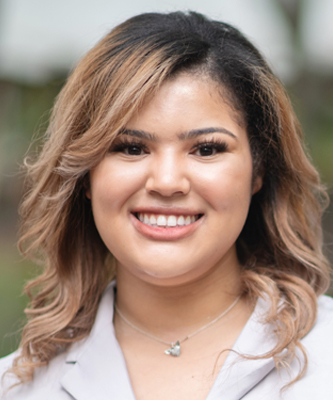
Hampton, Virginia, native Aviaé Gibson graduated with a bachelor’s degree in government and African American studies from UVA. She served on the University Judiciary Committee and as president of the Undergraduate Black Law Students Association.
She said that the Law School’s clinical programs, such as the Innocence Project and Decarceration and Community Reentry clinics, appealed to her because they give first-year students an opportunity to volunteer and show UVA’s commitment to serving the community and state.
Gibson added that she was impressed by what she’s heard about how “faculty are invested in their students’ success and readily make themselves available.”
“Whether it’s using the Take a Professor to Lunch Program or working as an intern for a professor, there are a plethora of opportunities to develop relationships with professors who share common interests,” Gibson said.
As a future lawyer, she hopes to “ensure that empathy and compassion hold a permanent place in our legal system,” she said.
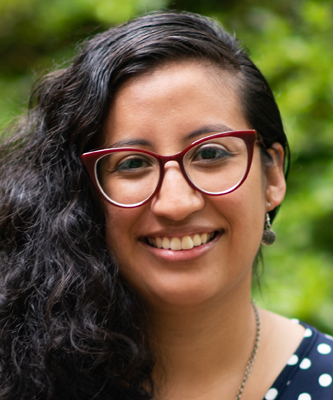
Azalea Lopez, of Berwyn, Illinois, earned a bachelor’s degree in history from Northwestern University. She formerly worked as a paralegal at the U.S. Justice Department’s Foreign Corrupt Practices Unit and the North Carolina Justice Center.
Lopez said she was drawn to UVA Law after watching videos of first-year lectures online, especially “How To Read a Case,” in which Professor Anne Coughlin encouraged students to question the readings included in their syllabi and understand the real-world implications of a case.
“These are the types of professors I want to shape my legal education because, as a paralegal, I have observed that the most brilliant attorneys refuse to settle for simple answers and constantly challenge the material presented to them,” Lopez said.
She also liked hearing that alumni and students felt supported by communities formed at the Law School.
Lopez, who recalled challenges growing up in a Latino working-class community, wants to pursue a career as a federal public defender and use her legal training to ensure defendants receive quality and fair representation.
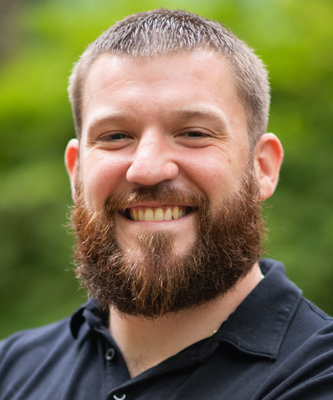
Long Island, New York, native Riley Nicholson graduated with a bachelor’s degree in peace, war and defense from the University of North Carolina at Chapel Hill. Before college, he served for three years as an information systems technician in the U.S. Navy.
“What appealed to me most about UVA Law’s academic program was its reputation for collegiality and cooperation,” he said. “I’d rather share my experience with others, learn from theirs and just enjoy people, than get caught up in dog-eat-dog competition.”
As a father of two sons, Nicholson said he wants to become a lawyer in part so he can provide a better future for his family.
“It is my job to show them the importance of dedicating oneself to an honorable profession, while ensuring the needs of family are always met,” he said.
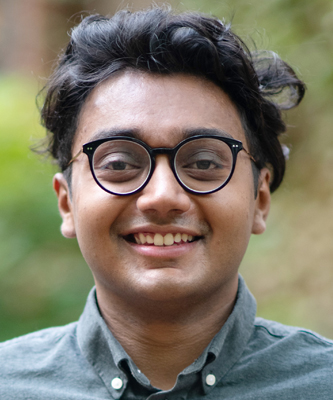
Hailing from Denver, Rahul Ramesh earned bachelor’s degrees in economics and rhetoric from the University of California, Berkeley, where he placed in national debate tournaments.
He appreciated the Law School’s community spirit and called the career opportunities “unparalleled.”
“While I was applying to law school, I wasn’t sure what exactly I wanted my practice area to look like, but I knew I’d like to pursue a federal clerkship and UVA is nationally regarded for its Office of Judicial Clerkships,” said Ramesh, who is also participating in the Community Fellows Program, which aims to foster a sense of belonging at the school. “With that baseline, I felt confident that I could find my niche in the public interest space while in law school.”
He said working with high school students as a debate coach taught him the importance of forming connections that transcend the obligatory, an outlook Ramesh wants to carry with him as a lawyer.
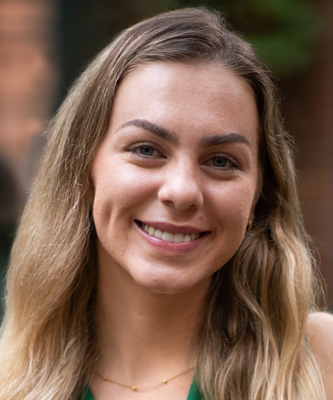
Grace Wenstrom, of Galesburg, Illinois, earned a bachelor’s degree in journalism and mass communication from the University of Iowa. Before law school, she interned full time at the U.S. Justice Department’s Immigrant and Employee Rights Section. She also interned with child advocacy and legal services groups.
Wenstrom said UVA Law graduates’ track record in clerkship and federal agency placements was a draw, and opportunities to gain experience, such as through the Program in Law and Public Service, appealed to her. The daughter of an elementary school teacher, Wenstrom said she hopes to use her J.D. to tackle the barriers faced by many of her mother’s students and the clients she met through her internships.
She added that the school’s “emphasis on practice along with theory was a selling point.”
“Even as an incoming student, I had the opportunity to read a faculty-written book on oral advocacy, hear from current students about clinical experiences and connect with career development staff,” she said. “I greatly appreciated this concurrent flow of academic and professional resources, and knew it was indicative of a robust program.”
Members of the class bring a range of other experiences to the Law School, including working as a fine art appraiser and auctioneer, a professional actor and an intern at the Czech Ministry of Foreign Affairs. One student was a Fulbright Fellow in Austria and another was renamed by the Dalai Lama at age 17.
Related Stories
- UVA Law Welcomes New Students at Orientation
- Second-Generation Naval Officer Christina Onianwa To Attend UVA Law Through Elite Navy Scholarship Program
- Milan Shah Has Engineered Inventions — And Now He’s Creating a New Career Path
- From Skydiving to Search and Rescue, Shelby Wolfe Has Chased Her Fears
Founded in 1819, the University of Virginia School of Law is the second-oldest continuously operating law school in the nation. Consistently ranked among the top law schools, Virginia is a world-renowned training ground for distinguished lawyers and public servants, instilling in them a commitment to leadership, integrity and community service.


